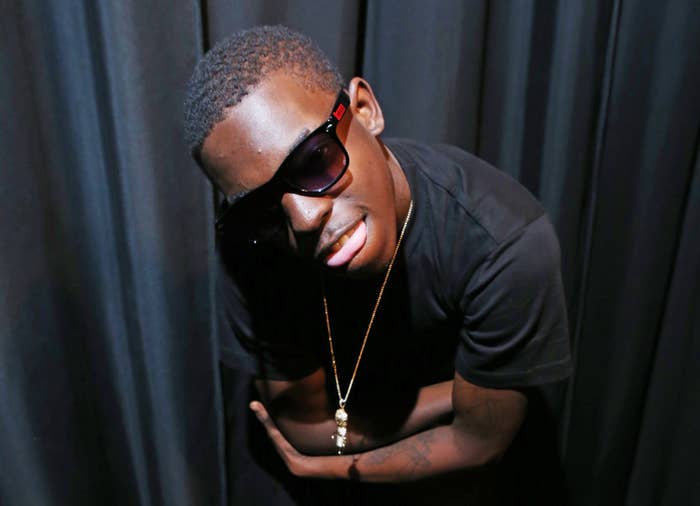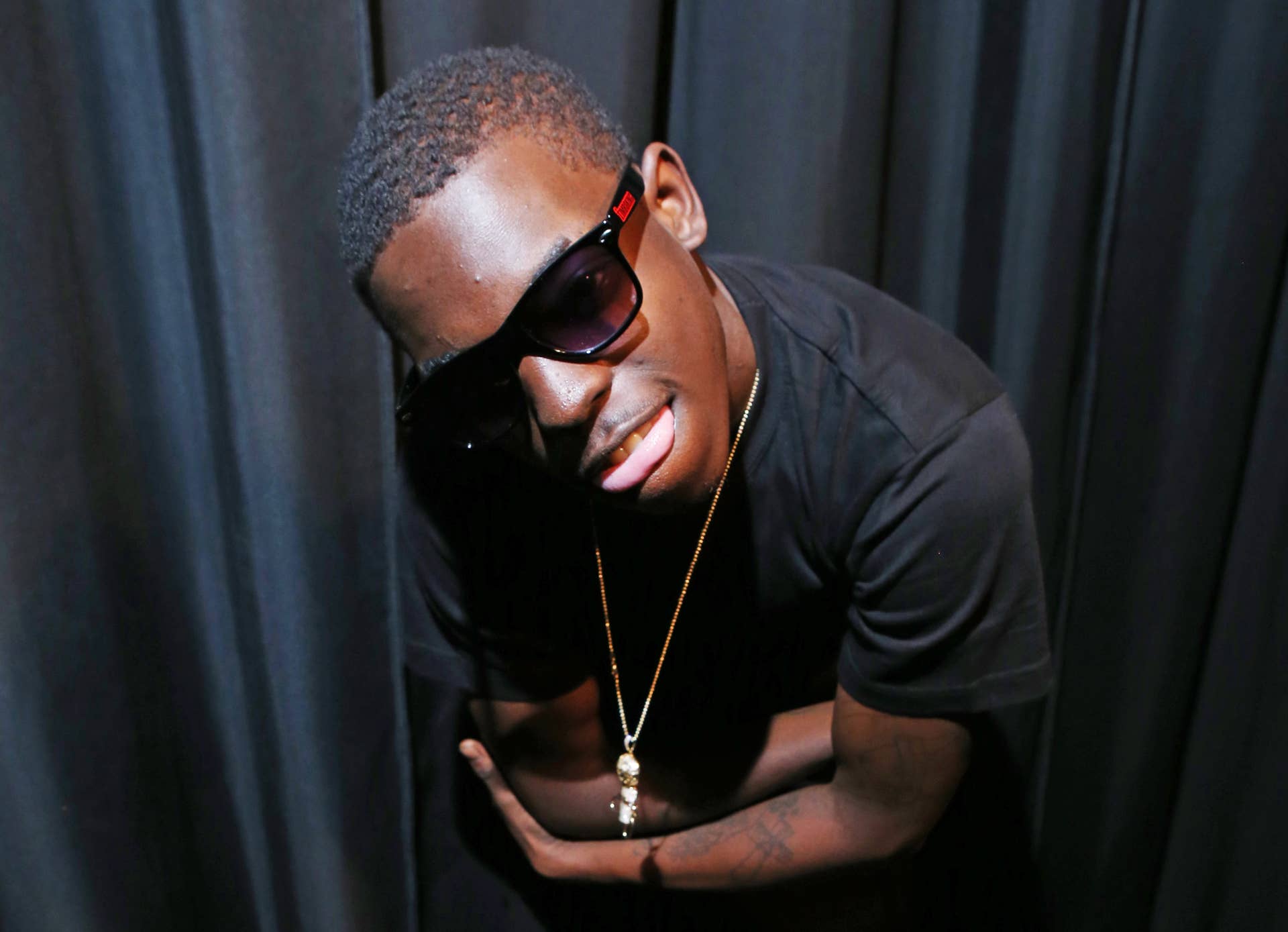
“Free Bobby Shmurda” is finally backwards. The beloved Brooklyn rapper is home today, ready to re-embark on a music career halted by a six-year prison bid. His return is a long time coming for his fans, especially those who hollered “Free Bobby Shmurda” throughout his incarceration.
“Free so and so” has become a knee-jerk response to news of many artist’s arrests, but the phrase takes on a more layered meaning when it comes to Bobby.
The NYPD’s treatment of Bobby and his GS9 peers has been one of hip-hop’s most teachable moments, occurring amid a heightened cultural interest in criminal justice reform and carceral abolition. Those with no interest in his music took on his cause, using his story to highlight the flaws of predacious policing, sentencing, and the criminalization of Black art.
Calling Bobby a political prisoner would be a reach, but it’s equally irresponsible to ignore the political implications baked into “Free Bobby Shmurda.” His advocacy was so resonant because people were calling for his freedom for different reasons. Sure, some people were simply saying it for the meme factor. But there are others who respect him lengthening his sentence for Rowdy Rebel, and doing his time without implicating anyone. Some championed his plight out of anti-carceral ethos, acknowledging his misdeeds, but also challenging the system that leads young Black and Brown people astray. And of course, there are others who don’t care what he did and simply want new music, representing not just cultural voyeurism, but how much some will overlook from their favorite. For all of these reasons, “Free Bobby Shmurda” is so much deeper than those three words.
Still-incarcerated media personality Taxstone once said the first time he watched “Hot Nigga,” he did so with the sound off because Bobby was so entertaining. There are millions of others who feel similarly. Most artists are lucky to have one viral moment in their videos, but Bobby’s breakout “Hot Nigga” had two. There was the Shmoney Dance that everyone from Beyoncé to the US Men’s National Basketball team did, and there was also his flying hat which became one of hip-hop’s funniest memes. He quickly became rap’s people’s champ, a figure who couldn’t help but go viral and bolster the cultural lexicon. There was the “Computers” song and video with Rowdy Rebel. There was him acting a fool in the studio, stamping his induction into the rap snippet Hall of Fame. Eventually, he fully leaned into his magnetism with the “Bobby Bitch” video, which spotlighted him dancing against a white wall.
But as quickly as his star rose, he was gone. He and 14 other GS9 members were ensnared in a major gang indictment in Dec. 2014. Did Bobby and Rowdy’s rap fame expedite the NYPD’s desire to incarcerate them? Given the city’s hip-hop police unit and GS9 member Fetty Luciano’s observation that “the music definitely made [police targeting] worse,” their notoriety most likely did play a factor, representing another example of rap music being criminalized. Most reasonable people knew Bobby should face some form of accountability if he indeed shot at people in front of a Flatbush barbershop as the NYPD alleged. But there was also outrage at the NYPD’s surveillance. New York wasn’t spending as much as activists believed they could on education and anti-poverty measures, but had enough resources for a gang unit to arrest Black and Brown youth on grounds as frivolous as being in a picture with the “wrong” person. Fetty Luciano had hoop dreams, and has said that college scouts came to see him play a game at his high school—but he was already incarcerated from the gang indictment. In what kind of system does sending someone to prison seem like a more sensible idea than letting them go to college?
Bobby and his peers became symbols of how the NYPD systematically targeted and criminalized entire groups of youth as gangs. It’s from his case that so many people learned that the NYPD has an arbitrarily-compiled gang database which is “90% Black and Hispanic.”
Those who viewed his case in black and white “guilty or innocent” terms may not understand the optic of saluting someone who may have committed violence, but that mindset ignores the lack of opportunities in areas like Bobby’s native Flatbush section of Brooklyn. City-Data tabulated that “17.7% of Brooklyn, NY residents had an income below the poverty level in 2019, which was 26.2% greater than the poverty level of 13.0% across the entire state of New York.” Just by virtue of where he was born, Bobby was more predisposed to poverty (and consequential violence), which is an indictment of the system. So instead of condemning him, some who understand the system’s racial biases shouted “free him” as a subtle affirmation that warehousing people in prison isn’t the answer; giving them opportunity is.
Whether someone was giving a middle finger to the system, saluting his loyalty, or merely projecting their own ugliness, “Free Bobby Shmurda” was one of the most resonant cries for freedom in rap.
Bobby was sentenced in September 2016, and reportedly agreed to take a longer sentence so that his comrade Rowdy Rebel could have a shorter one. That move is part of what made Young Thug speak for many by calling him “the definition of loyalty and principles.” Bobby gained respect not just for what he did for Rowdy, but by doing his time without implicating anyone else. Rap is full of artists rapping about violence they’ve never partaken in, and there are people who legitimately have scars from “that life” and are well within their right to be annoyed by the dynamic. Bobby is the exact opposite of that, which is why the streets screamed “Free Bobby.”
But of course, not all the people who salute him for embodying their definition of “real” do so out of peer respect as much as fascination. The rap game’s ubiquity has opened the floodgates for naive fans who desire their favorite artists to be live-action superheroes. Tay-K was convicted of killing 21-year-old Ethan Walker during a robbery, and people still say “Free” him without a whim. Do all of these people have a suggestion for an alternative process of accountability for him? Or do some just want him completely absolved, regardless of how Walker’s family feels, so they can get new music?
As NPR’s stellar Louder Than A Riot podcast chronicled, there were real victims of GS9’s actions. “Defund the police” advocates called for Bobby’s freedom while simultaneously stumping for victim-focused alternatives (and poverty-mitigating resources), but some fans don’t care about any of that. They just want new Bobby Shmurda music and memes. These are the fans ripe to dehumanize artists into mere fodder, spectating their beefs as if they were watching a reality show. They demonstrate that screaming “Free” someone isn’t inherently anti-carceral, or even about the incarcerated person as much as their own whims.
Some of these people are likely the segment of rap listeners that views “Free Bobby Shmurda” as a mere meme, according to sites like KnowYourMeme. Almost anything that goes viral is ripe to attract gawkers who have no stake in the story, but a desire to be a part of whatever’s trending. Enter “Free Bobby Shmurda” copypastas and Garfield memes, likely created by people who couldn’t name three of his songs. That segment of the population exists, but “Free Bobby Shmurda” is no mere meme. Anyone who believes this group is the catalyst of the campaign couldn’t be further, literally or figuratively, from the Brooklyn streets or the criminal justice reform fight.
Perhaps it’s fitting that the vibrant, ever-viral star was the subject of one of the social media’s most lasting campaigns of the 2010s. Even in his absence, he was viral. Some would say it was what he deserved. Whether someone was giving a middle finger to the system, saluting his loyalty, or merely projecting their own ugliness, “Free Bobby Shmurda” was one of the most resonant cries for freedom in rap. It’s one of those phrases that says so much about a person, depending on what it means to them. But hopefully, it only has past-tense meaning from hereon. Bobby is home, and ready to embark on a new chapter of his life and career.


